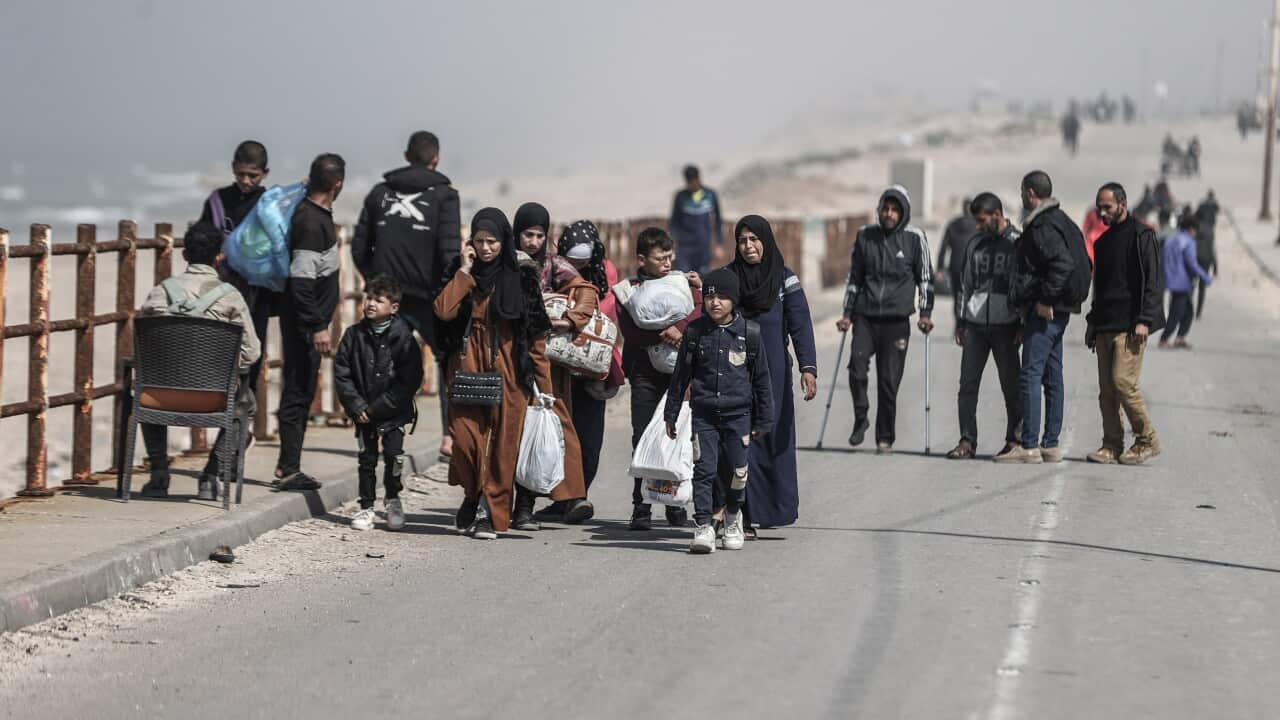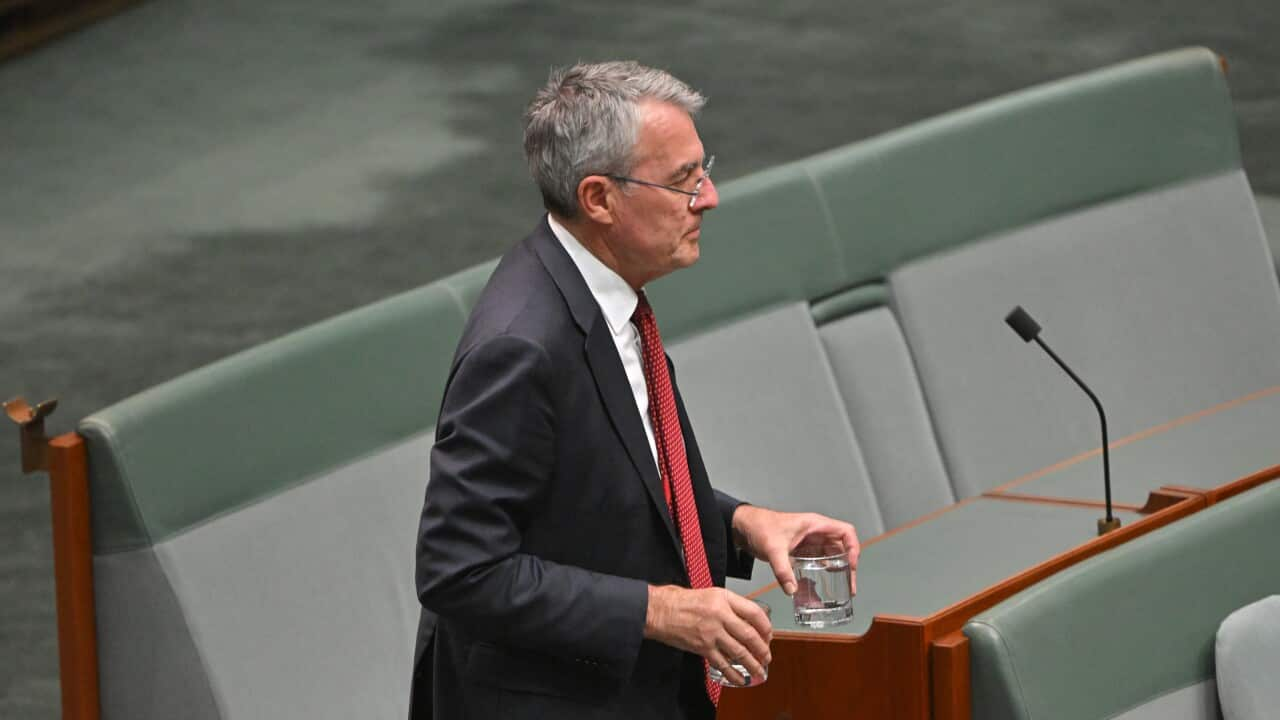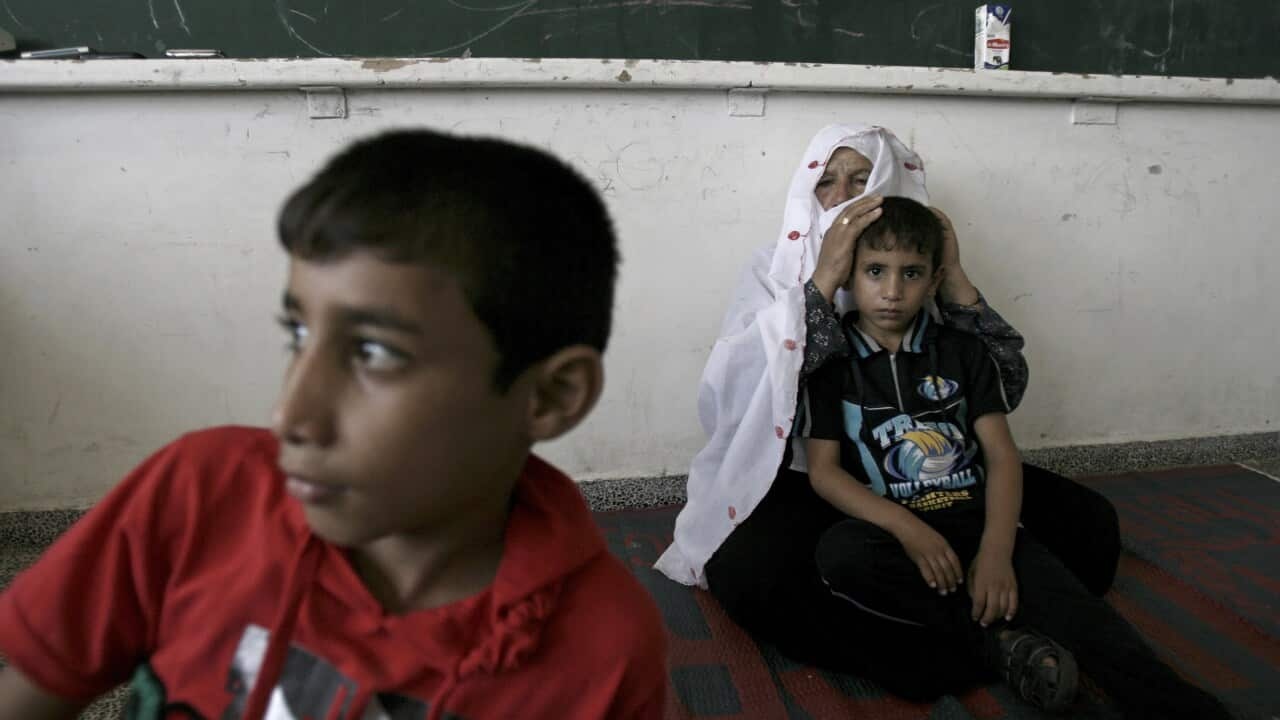Hani Abushaban had never been on a plane until last week.
But after the Australian government cancelled his visa, the 23-year-old found himself stuck in one of the world’s largest international airports.
He didn't have access to a change of clothes or his medication, and was struggling to pay for food.
"I think the decision the Australian government took was so harsh to me," he told SBS News from Istanbul airport in Türkiye.
Hani is among 12 Palestinians whose .
He said he struggled being stranded in such a large airport for several days without anyone to support him.
"I'm not used to being separated from my family, and I'm not used to being alone like this," the recent university graduate said.
"Whenever I ask someone to help me, they tell me that 'You should do the calls by yourself, we don't know what to do with you'."

Hani has spent several nights sleeping in Istanbul airport without access to his luggage or medication. Source: SBS News
SBS News understands nine people supported by the advocacy group Palestine Australia Relief and Action (PARA), including Hani, have now had their visas reinstated after the government undertook additional security checks.
Three others are still waiting to discover their fate.
Despite his visa being re-issued, being unable to access his luggage until he reaches Australia means Hani's health is deteriorating.
"I'm not feeling well because of the canned food that I have been consuming during the war in Gaza and I'm suffering right now from gut health problems," he said.
"The airlines here won't give me my luggage until I go to a certain destination and take it with me."
'It's very difficult'
The sprawling Istanbul airport has also been home for the last few days for Rami Eisa and his young family.
After he and his wife Yasmin's visas were cancelled, they were faced with a difficult decision.
"My children, their visas are still valid and also my father," Rami told SBS News.
"My father went ahead alone. I couldn't leave him [with] my kids because he's an old man and ill, he has diabetes, [so] he couldn't take care of three children on his own."

Rami and Yasmin Eisa and their three children didn't want to leave their home in Gaza, but had no choice. Source: SBS News
"It's very difficult," Rami said.
"There's food, of course, but it's fast food most of the time, and it's extremely expensive.
"We just sleep on the ground or maybe we can find a chair there or here to sleep on - but we have kids … they cannot understand this situation."
Rami said his eldest, Elen, had been having nightmares that she'd been returned to Gaza.
"I'm tired and I'm sad and I'm so scared," the nine-year-old said.
Back home in Gaza, Rami was a journalist.
He said it was hard to leave, but they had no choice for the sake of their children.
"We have suffered a lot," he said.
"You have no idea how many times we had to move.
"We travelled from Gaza to Egypt, which is impossible to get out."

Rami said making the decision to leave Gaza was a difficult one. Source: SBS News
Some families have paid thousands of dollars to a private Egyptian security firm to assist them.
Before they are allowed to leave, their names must appear on a daily list published by the Palestinian border authority of the people whom Egypt and Israel have approved to leave.
After SBS News spoke to them, Rami and Yasmin's visas were reinstated, meaning they will be allowed to travel on to Australia.
The Australian government has issued 2,127 visitor visas between 7 October and 31 December last year to people declaring Palestinian citizenship.
Of that figure though, only 301 people have actually arrived either on a visitor visa or another visa during that period.
Over 2,000 visitor visas have also been granted to Israeli citizens.
People holding such visas aren't permitted to work, or access education or healthcare in Australia.












